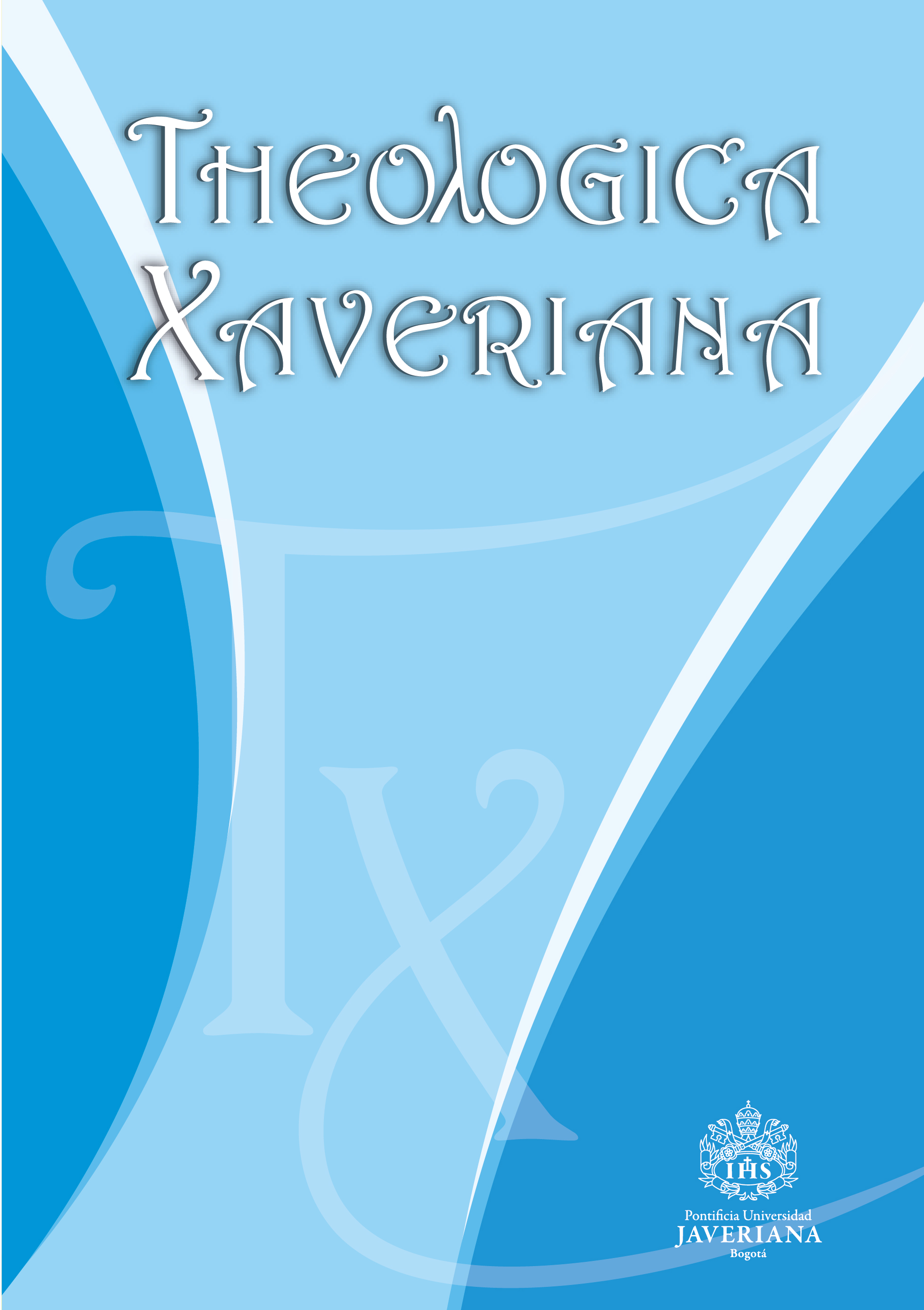Resumo
Karl Rahner, ao articular natureza e graça em teologia sistemática, traz da escolástica para os desafios do nosso tempo o conceito de “cristãos anônimos”, que, depois de já se considerar superado por teólogos do diálogo inter-religioso de décadas atrás, volta ao cenário atual como relevante devido à nova onda de enrijecimento de alas conservadoras do catolicismo. Este artigo, refazendo o percurso trilhado por Rahner, investiga os sempre novos caminhos da graça divina, que deseja salvar a todos e todas, dentro e fora do mundo das religiões.
Denzinger, Heinrich; Hünermann, Peter. Compêndio dos símbolos, definições e declarações de fé e moral (2.ed.). São Paulo: Loyola-Paulinas, 2013.
Duffy, Stephen J. “Experience of Grace.” En The Cambridge Companion to Karl Rahner, por D. Marmion y M. E. Hines, 43-62. Cambridge (U. K.)-New York (NY): Cambridge University Press, 2005Pio XII. “Carta encíclica Humani generis” (1950), Santa Sé, http://w2.vatican. va/content/pius-xii/pt/encyclicals/documents/hf_p-xii_enc_12081950_humani-generis.html (consultado el 13 de abril de 2018).
Rahner, Karl. “Anonymous Christians”. En Theological Investigations, por K. Rahner, Vol. 6, 390-398. Baltimore (MD): Helicon Press, 1969.
_____. “Christianity and the Non-Christian Religions”. En Theological Investigations, por K. Rahner, Vol. 5, 115-134. Baltimore (MD): Helicon Press, 1966.
_____. “Concerning the Relationship between Nature and Grace”. En Theological Investigations, por K. Rahner, Vol. 1, 297-317. Baltimore (MD): Helicon Press, 1961.
_____. Curso fundamental da fé. Introdução ao conceito de cristianismo (4.a ed.). São Paulo: Paulus, 2008.
_____. “Nature and Grace”. En Theological Investigations, por K. Rahner, Vol. 4, 165-188. Baltimore (MD): Helicon Press, 1966.
_____. Nature and Grace. Dilemmas in the Modern Church. New York (NY): Sheed and Ward, 1964.
_____. “Reflections on the Experience of Grace”. En Theological Investigations, por K. Rahner, Vol. 3, 86-90. Baltimore (MD): Helicon Press, 1967.
_____. “Reflections on the Unity of the Love of Neighbour and the Love of God”. En Theological Investigations, por K. Rahner, Vol. 6, 231-249. Baltimore (MD): Helicon Press, 1969.
_____. “The Church and Atheism”. En Theological Investigations, por K. Rahner, Vol. 21, 137-150. New York (NY): Crossroad, 1988.
_____. “The Future of Christian Communities”. En Theological Investigations, por K. Rahner, Vol. 22, 120-133. New York (NY): Crossroad, 1991.
Ratzinger, Joseph. “Necessita della missione della Chiesa nel mondo”. En La fine della Chiesa come societa perfetta, por M. Cuminetti y F. V. Joannes, 65-77. Verona: Mondadori, 1968.
Scotus, Ioannes Duns. “Ordinatio”. In Opera omnia. Vols. 9-10. Roma: Typis Polyglottis Vaticanae, 2006-2007.
Teixeira, Faustino. “Karl Rahner e as religiões”. En Karl Rahner em perspectiva, organizado por Pedro Rubens F. de Oliveira y Claudio Paul, 243-262. São Paulo: Loyola, 2004.
Vandervelde, George. “The Grammar of Grace. Karl Rahner as a Watershed in Contemporary Theology”. Theological Studies 49 (1988): 445-459.
Wandinger, Nikolaus. “Karl Rahner on Nature and Grace. A Journey through His Early Articles”. http://www.uibk.ac.at/theol/leseraum/texte/341.html (consultado el 11 de abril de 2018).
Esta revista científica se encuentra registrada bajo la licencia Creative Commons Reconocimiento 4.0 Internacional. Por lo tanto, esta obra se puede reproducir, distribuir y comunicar públicamente en formato digital, siempre que se reconozca el nombre de los autores y a la Pontificia Universidad Javeriana. Se permite citar, adaptar, transformar, autoarchivar, republicar y crear a partir del material, para cualquier finalidad (incluso comercial), siempre que se reconozca adecuadamente la autoría, se proporcione un enlace a la obra original y se indique si se han realizado cambios. La Pontificia Universidad Javeriana no retiene los derechos sobre las obras publicadas y los contenidos son responsabilidad exclusiva de los autores, quienes conservan sus derechos morales, intelectuales, de privacidad y publicidad.
El aval sobre la intervención de la obra (revisión, corrección de estilo, traducción, diagramación) y su posterior divulgación se otorga mediante una licencia de uso y no a través de una cesión de derechos, lo que representa que la revista y la Pontificia Universidad Javeriana se eximen de cualquier responsabilidad que se pueda derivar de una mala práctica ética por parte de los autores. En consecuencia de la protección brindada por la licencia de uso, la revista no se encuentra en la obligación de publicar retractaciones o modificar la información ya publicada, a no ser que la errata surja del proceso de gestión editorial. La publicación de contenidos en esta revista no representa regalías para los contribuyentes.



